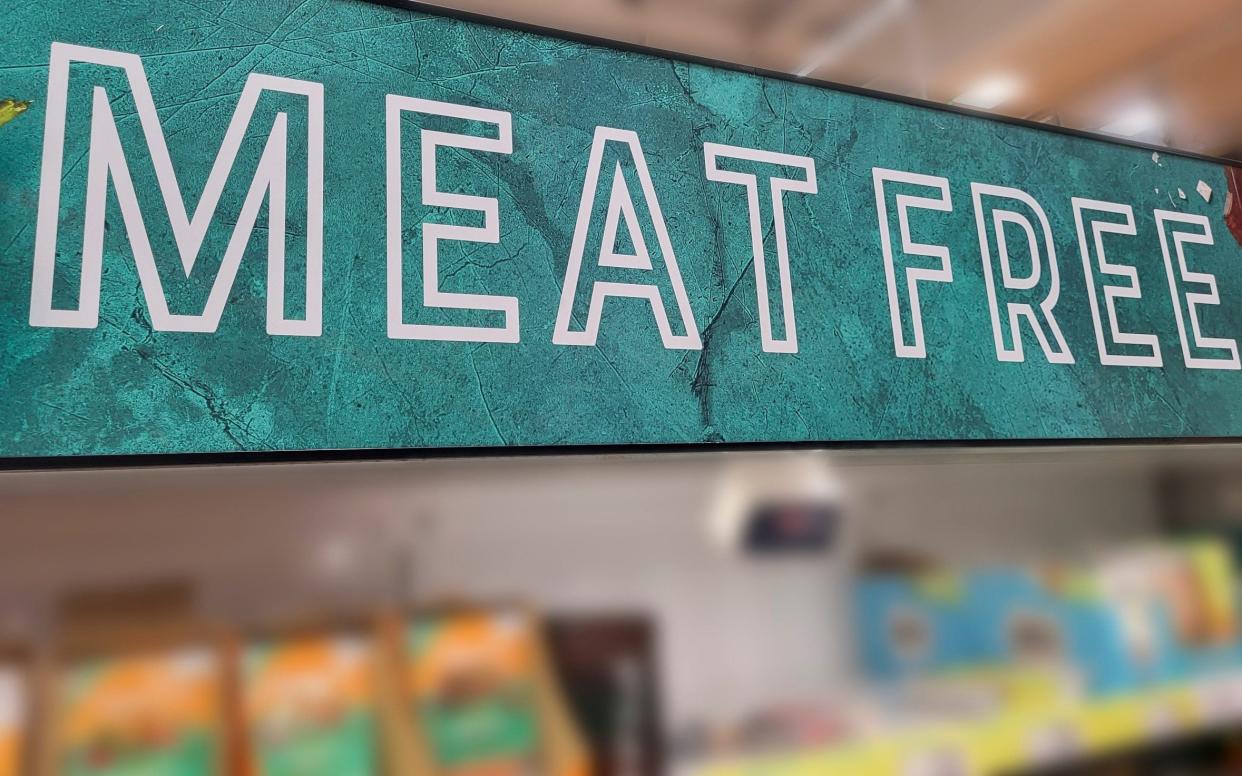Vegetarians must have a death wish – for themselves and the planet

Three cheers for Martin Freeman. The Hobbit actor has given up being vegetarian after 38 years, blaming meat replacements for being “very processed”.
Maybe this is an indication that the food wokeism fad – a symptom of our modern-day counter-enlightenment – is over. Can we dare to hope that henceforth we will no longer see anaemic-looking “influencers” posting virtue signalling photographs of ultra-processed soya and pea protein gloop burgers and oat juice lattes? (I refuse to call them “meat” or oat “milk”). Even the UN has warned that plant-based alternative “meat” products are often highly processed with high salt levels.
Certainly, Mr Freeman has dared to say what was recently unsayable in luvviedom. He asserted, “It’s a free country, I can do what I like.” And went further: “A pork pie with the jelly … a bit of mustard on a pork pie – oh man. It’s food of the gods.” Comments that may induce heartburn among the Packhamites and Monbiotistas on the vegetarian Left.
It always seemed improbable to me that we would give up on the animal fats and proteins that helped humans to evolve into the dominant species on the planet. The only other mammal to have stopped being carnivorous – the panda – has found it to be an evolutionary cul-de-sac.
I believe history will judge harshly the marketing executives who persuaded a generation of young people that they would boost their health by becoming vegetarian or, worse, vegan. The evidence is now plain to see, forensically examined in books such as The Great Plant-Based Con by Jayne Buxton, and seen in the young people whose health has been ruined by extreme diets short of animal fats and long on carbohydrates.
The other claim, that forswearing meat will save the environment, also looks shaky. I am well-placed to judge. I converted two thirds of my farm to grass in recent years and it now grows meat and milk. The other third is arable and still grows “plant-based foods”. Recently our soils were analysed independently in a laboratory. The soil in fields grazed by cattle had removed over 17 tons per hectare more carbon from the atmosphere than the soil still being used to grow plant-based food.
The effects on our biodiversity are even more startling. Since bringing cattle back on to my farm, we have regained many of the farmland birds we thought we’d lost. The fields that are regularly spattered with cowpats are full of rooks, starlings, wagtails and even rare waders such as lapwings and curlews.
Swallows circle above the cattle by day and bats by night, harvesting insects. Whereas the practically lifeless arable fields have a silent spring. It’s not rocket science: a cow can feed a fifth of its own weight in insects annually through its faeces. One of the biggest reasons for the decline in British birdlife must surely be because of the number of farms that have housed their cattle or got rid of them altogether.
Of course, I have a vested interest. But I’m in no doubt that, to save the environment, we should be promoting an omnivorous diet based on grass-fed meat and dairy. Fortunately the market seems to agree with me and Mr Freeman. In August 2023, Beyond Meat, the poster company for vegan substitutes, announced that sales had fallen by almost a third, blaming “softer demand in the plant-based meat category”.
Common sense is returning to the land.
Jamie Blackett is a farmer and the author of ‘Red Rag to a Bull’ and ‘Land of Milk and Honey’

 Yahoo News
Yahoo News 
